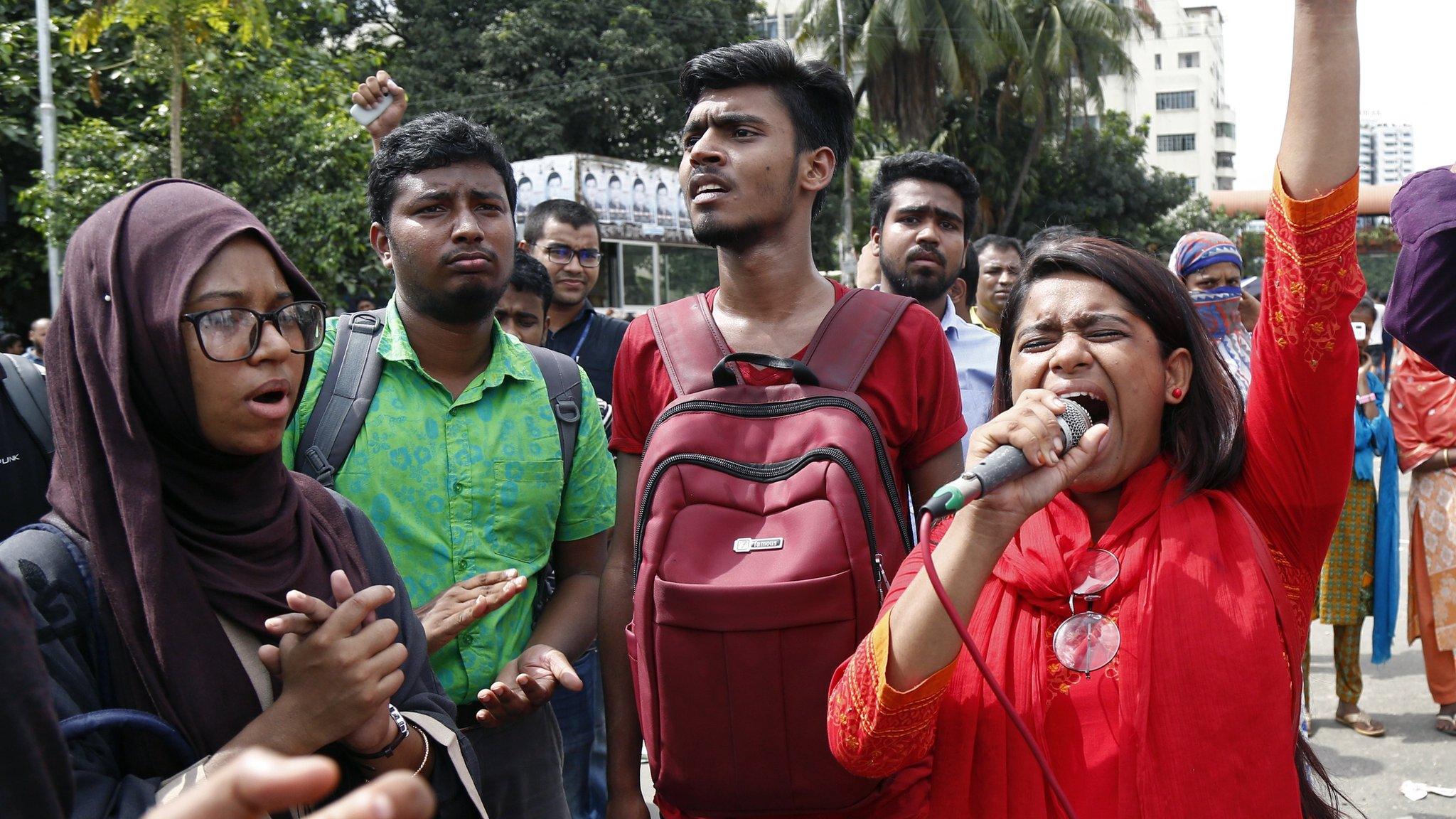Abrar Fahad killing: Bangladesh student was beaten for four hours
- Published
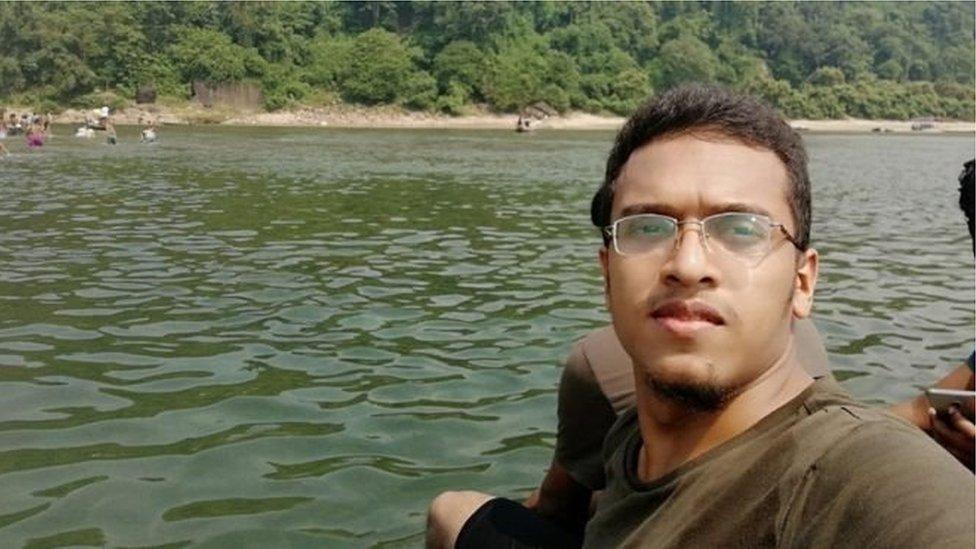
Abrar Fahad was attacked in his dormitory days after posting criticism of the government
A Bangladeshi undergraduate student killed in his dormitory on Sunday days after criticising the government online was beaten for several hours before he died, witnesses told the BBC.
Fellow students say Abrar Fahad was taken from his room around 20:00 (14:00 GMT) and beaten at least four hours.
The doctor who performed the autopsy on Fahad, who was 21, confirmed to the BBC his body was heavily bruised.
Fahad studied at Dhaka's Bangladesh University of Engineering (Buet).
Several members of the Bangladesh Chhatra League (BCL) - the youth wing of the governing Awami League party - were detained in connection with the death.
The BCL has been widely accused of using torture and extortion against students.
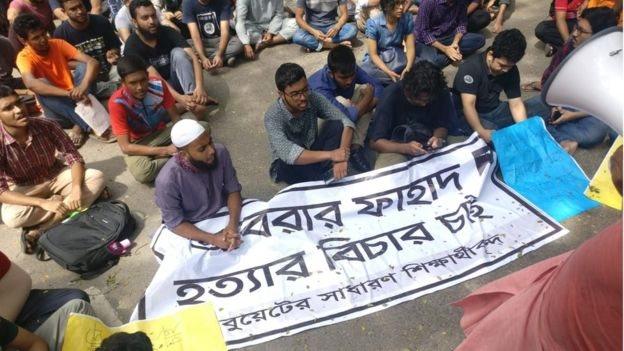
Students at the Bangladesh University of Engineering protest after Fahad's death
CCTV footage from Fahad's dormitory showed several men carrying the victim's body. Police detained nine men from the dorm, including at least five BCL activists.
By Tuesday the number of arrests had risen to 13, police said, all from Buet, while six more suspects are being sought.
Dhaka deputy police commissioner Munstasirul Islam confirmed the student had been beaten to death.
Dr Sohel Mahmud, head of the forensic department at Dhaka Medical College Hospital, who examined Fahad's body, told the BBC: "There was a lot of blunt force trauma in his body. We think he died of attack with blunt objects."
BCL members quoted by local media said Fahad had been "questioned" and beaten over alleged links to an Islamist party. That came after he wrote a post on social media criticising the government over a water-sharing deal with India.
In a statement, the BCL said that after carrying out investigations it had expelled 11 members of its Buet division, bdnews24.com reports.
'Please take me to the hospital'
A Buet student who spoke to the BBC but did not want to be named for fear of reprisals said they had seen Fahad alive at 02:00 in a room where he had been beaten.
"I saw Abrar in room 2005, he was still alive... With help from some junior students I carried Abrar downstairs. He was still alive and he was saying, 'Please take me to the hospital quickly.'"
Another student who arrived at the scene said several students had gathered with the assistant provost of the dormitory to urge him to take action, when members of the BCL started banging on the door, attempting to gain entry.
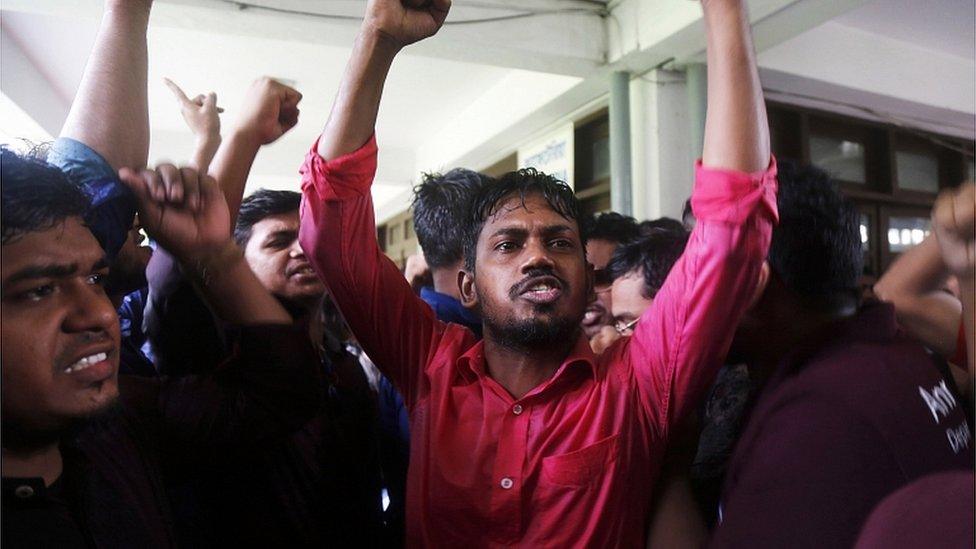
The death led to widespread student protests in Bangladesh
News of the death led to protests on Monday in Dhaka and other cities. Students in the capital chanted slogans and blocked roads. Protests continued on Tuesday with students at Buet demanding the death penalty for those found guilty of the killing.
Former students and members of the teaching staff also joined the demonstration on the Buet campus. The killing has shocked Bangladesh and shone a light on the culture of violence in public universities.
"This is totally unacceptable that a student will die from torture in a residential hall," said AKM Masud, president of the Buet Teachers' Association, according to Bangladeshi site bdnews24.com.
"Abrar Fahad's death has proved the authorities' complete failure to ensure the safety of students."

Where violence and torture are common
Analysis by Mir Sabbir, BBC Bengali, Dhaka
Torture of public university students by the student wing of the ruling parties is nothing new. New students are often forced to attend meetings and rallies just to be able to stay in the dormitories. Beating and bullying of those who hold different views or defy the order of the leaders is common.
When school students taking part in the 2018 road safety protests were beaten by unknown attackers in helmets, BCL activists were widely blamed.
The same year, BCL supporters attacked protesting students at Rajshahi University and pictures of one of the victims being beaten with a hammer went viral on social media.
Political parties have for a long time been using their student wings as their muscle. Although the parties are not allowed to have official student wings, their existence is undeniable.
Now even a senior leader of the Awami League has told BBC Bangla it is time to rethink whether this kind of politics should be supported. Many people in Bangladesh share the same view, not least the parents who are dreaming of sending their children to Buet one day.
- Published5 August 2018
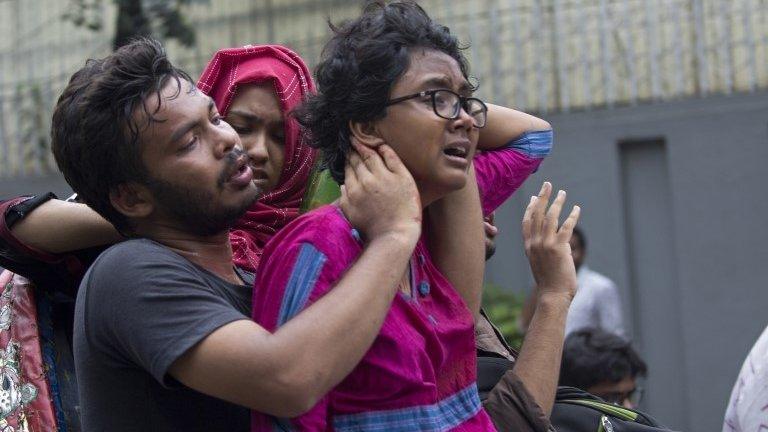
- Published4 August 2018
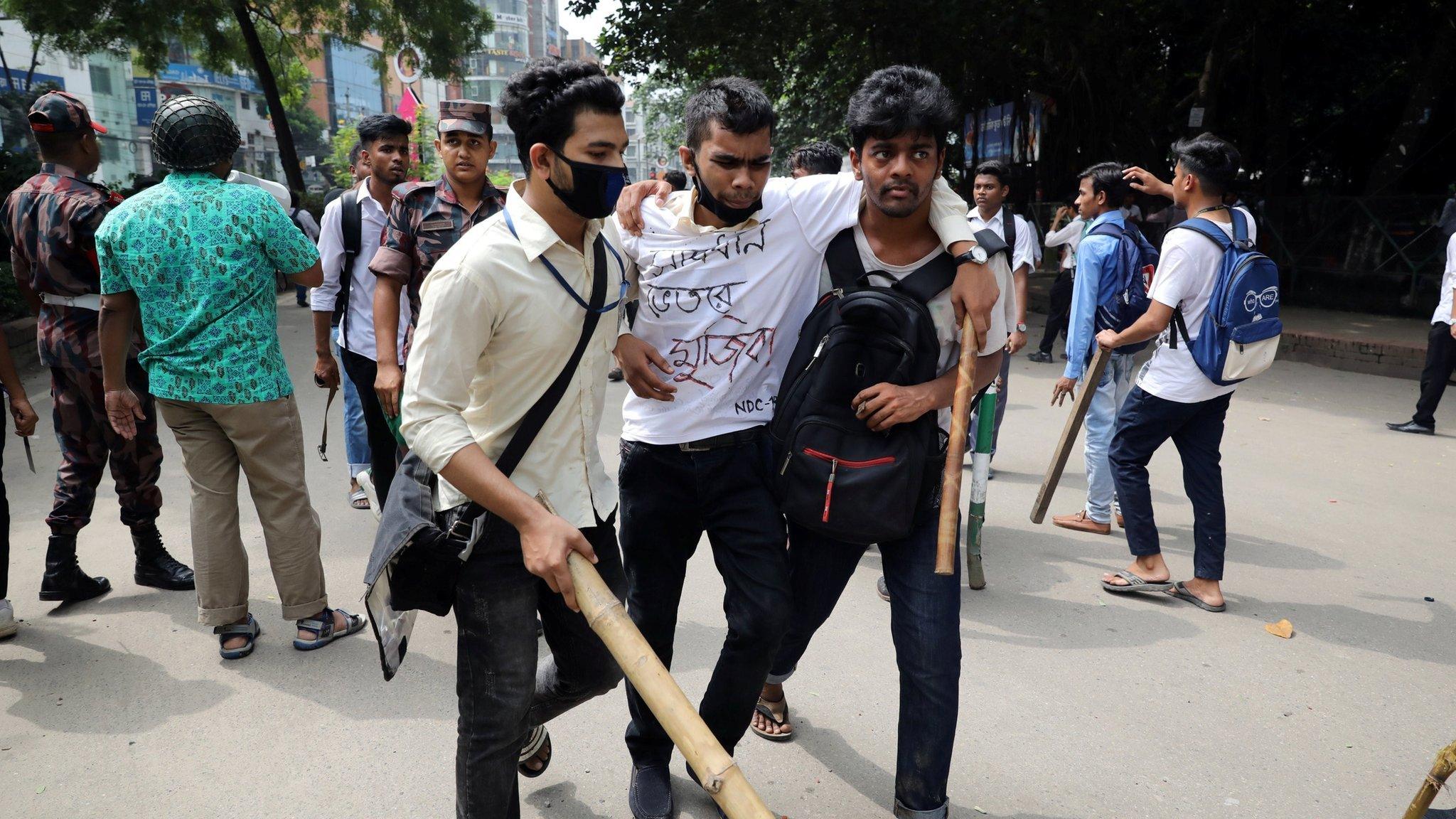
- Published2 August 2018
